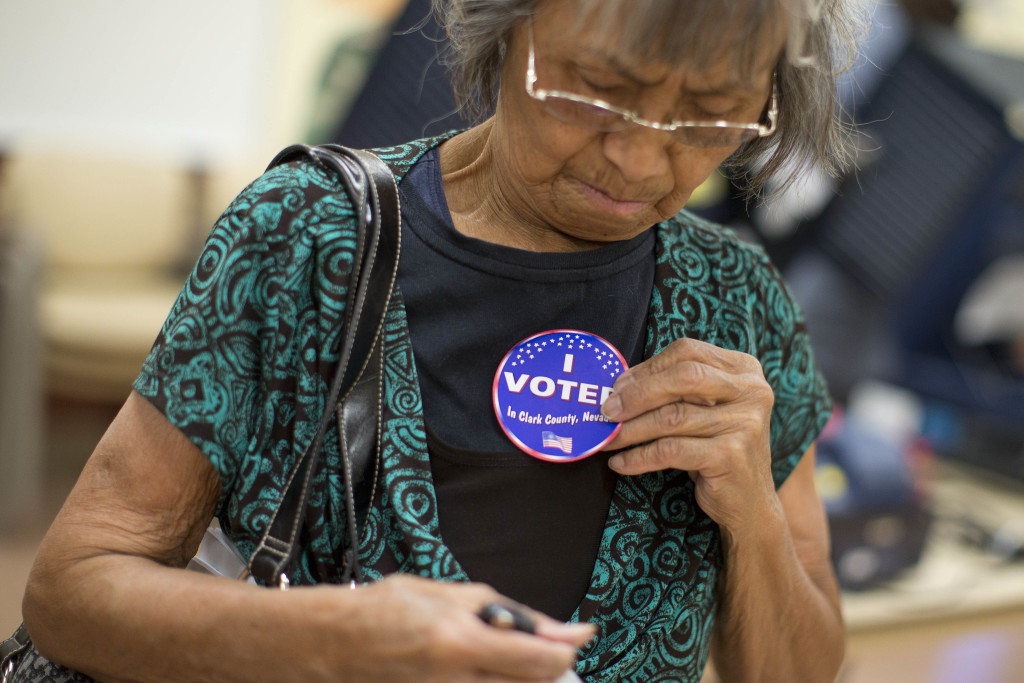Justice Dept. Sues North Carolina Over New Voter Law

September 30, 2013
Share
The Justice Department said it would sue North Carolina today over its new voting law, following a similar suit it filed against Texas last month objecting to its voter ID law.
In June, the Supreme Court overturned a key provision of the Voting Rights Act, which required states with a history of discrimination to submit voting law changes for clearance by the federal government. Under that provision, the government preemptively blocked changes that it deemed discriminatory without having to fight costly, time-consuming battles in court.
States who challenged the law before the Supreme Court argued that they no longer discriminated against voters and didn’t need to preclear their changes.
Hours after that decision, five of the nine covered states introduced new voting laws, some of which had previously been deemed discriminatory. North Carolina followed with its own law in August. Attorney General Eric Holder vowed to challenge voting laws that discriminated against minorities.
In the suits against Texas and now North Carolina, Holder is also arguing that because of their history of discrimination, the states should also be brought back under the preclearance requirement.
In North Carolina, the government is challenging restrictions in the new law that Holder described as “troubling,” including a reduction in the days available for early voting, when minorities are more likely to cast ballots; a photo identification requirement; and a ban on the counting of provisional ballots that are accidentally cast in the wrong precinct.
“By restricting access and ease of voter participation, this new law would shrink, rather than expand, access to the franchise,” Holder told reporters on Monday. North Carolina saw record turnout among African-American voters in the 2008 and the 2012 general elections, Holder said, adding that more than 70 percent of black voters cast ballots during the early voting period.
North Carolina legislators who backed the law said they wanted to curb voter fraud.
“While some will try to make this seem to be controversial, the simple reality is that requiring voters to provide a photo ID when they vote is a common sense idea,” said Gov. Pat McCrory, when he signed the bill last month. “This new law brings our state in line with a healthy majority of other states throughout the country. This common sense safeguard is common-place.”
The North Carolina’s attorney general office said it would release a statement later today.
The federal government isn’t the only one wading into the fight. A few weeks after the Supreme Court decision, other lawsuits began to crop up, with the aim of challenging laws before this year’s November elections and the 2014 midterm election.
Several civil rights groups have also sued Texas, and the American Civil Liberties Union has filed suit on behalf of several Pennsylvania voters who don’t have a valid ID card, and aren’t able to obtain one. Last month, a judge ruled that the Pennsylvania law couldn’t take effect until a verdict was reached, so it won’t be imposed for the November elections.
In August, the ACLU and the Southern Coalition for Social Justice also filed a suit challenging North Carolina’s new changes.

Latest Documentaries
Explore
Policies
Teacher Center
Funding for FRONTLINE is provided through the support of PBS viewers and by the Corporation for Public Broadcasting, with major support from Ford Foundation. Additional funding is provided the Abrams Foundation, Park Foundation, John D. and Catherine T. MacArthur Foundation, Heising-Simons Foundation, and the FRONTLINE Trust, with major support from Jon and Jo Ann Hagler on behalf of the Jon L. Hagler Foundation, and additional support from Koo and Patricia Yuen. FRONTLINE is a registered trademark of WGBH Educational Foundation. Web Site Copyright ©1995-2025 WGBH Educational Foundation. PBS is a 501(c)(3) not-for-profit organization.



















